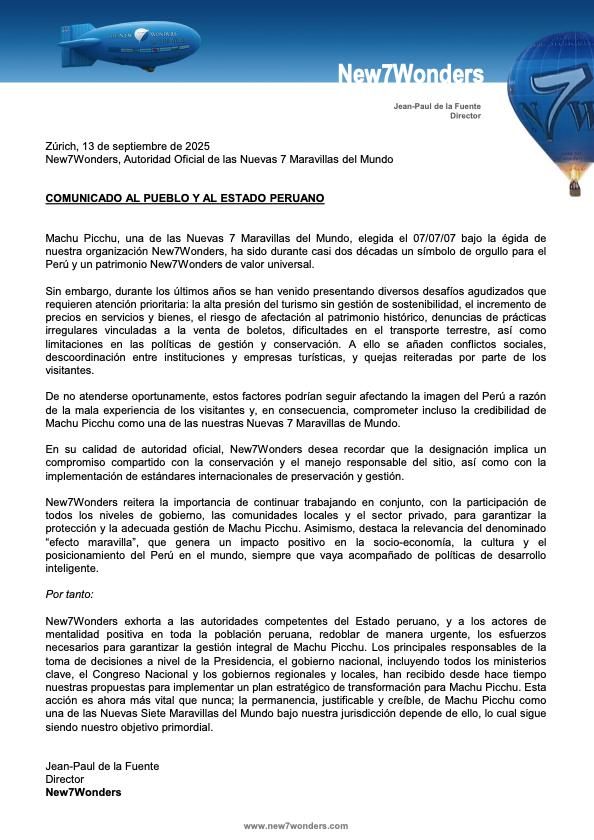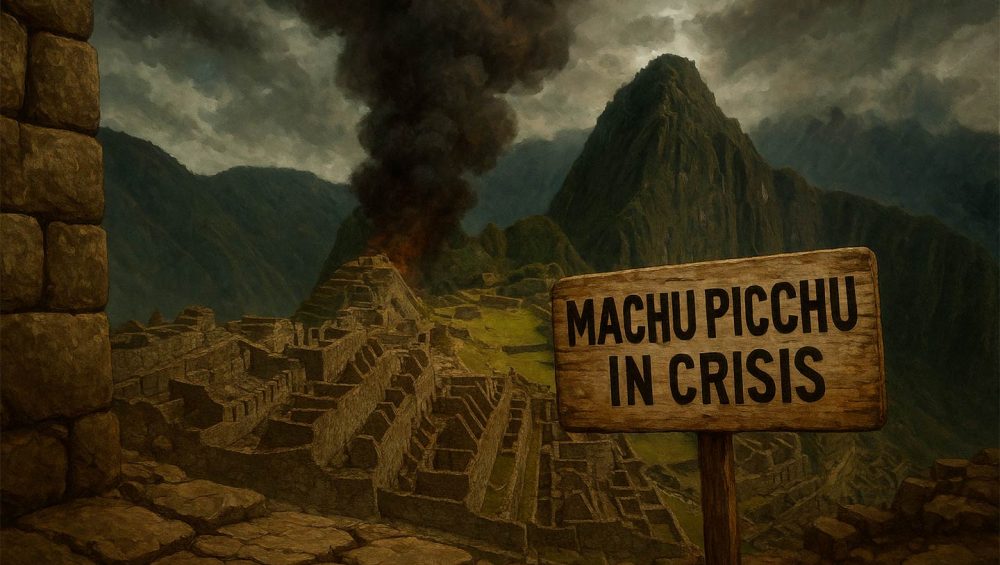Machu Picchu is going through one of the most delicate moments in its recent history. The lack of state action, conflicts with business sectors, and pressure from international organizations have triggered a crisis that threatens to irreversibly affect Peru’s main tourist icon.
The Inca citadel faces a triple problem: an indefinite strike called by local communities, the warning from the New7Wonders organization about the possible loss of its title as a New Wonder of the World, and the collapse of the tourism chain due to blockades and massive cancellations.
The dry strike, which began on Sunday, September 14, has completely stopped railway traffic on the Ollantaytambo – Machu Picchu route. Since dawn, dozens of tourists were stranded at the Ollantaytambo train station without official information and waiting for answers from Peru Rail, the service operator. Some visitors, accompanied by guides, were forced to walk the route due to the lack of regular transport.
In Machu Picchu Pueblo (Aguas Calientes), the train station remains closed under strict surveillance by the National Police, while numerous tourists wait for a departure to Ollantaytambo or Cusco. Despite the climate of uncertainty, visits to the citadel remain active, although the fear of a total halt in the coming days persists.
Protests for Tourist Transportation to Machu Picchu
The communities of Urubamba have started an indefinite strike in rejection of the alleged monopoly of tourist transport to Machu Picchu, one of the main sources of economic income in the region. The measure seeks that Peru Rail authorize the entry of 18 buses from the Sumaq Ayllu San Antonio de Torontoy company, in compliance with the contingency plan approved by the Provincial Municipality of Urubamba, after the contract with Consettur, a company that controlled the route for more than three decades, expired. The residents denounce a possible collusion between Peru Rail and Consettur, pointing to intentional maneuvers and delays to prevent the renewal of the transport service. They state that this situation directly affects the local economy, tourism, and the collective interests of thousands of families who depend on the visitors who come to the Inca citadel.
-
Escalation of protests
The resistance of Consettur to give up the operation has unleashed a climate of tension in Cusco. Workers and partners of the company held a demonstration in front of the Cusco Directorate of Culture, making complaints against the authorities who supported the entry of the new buses. The main people singled out were the president of the Machu Picchu Defense Front and the mayor of Urubamba, who face accusations of “betraying” previous agreements. Despite this, the local population mostly supports the renewal of the service, considering that the diversification of tourist transport will allow for lower prices, improved competition, and guarantee fairer access for visitors.
-
Statements and warnings
Amid the crisis, various communities declared several district authorities and business representatives “persona non grata”, accusing them of acting against the common good. The community leaders warned that, if the refusal of Peru Rail and Consettur continues, all tourist operations in the area will be suspended. Likewise, they announced that they will alert national and international travel agencies about the situation, which could trigger a drastic reduction in visitors to Machu Picchu, further aggravating the economic losses already counted in hotels, restaurants, crafts, and other services associated with tourism.
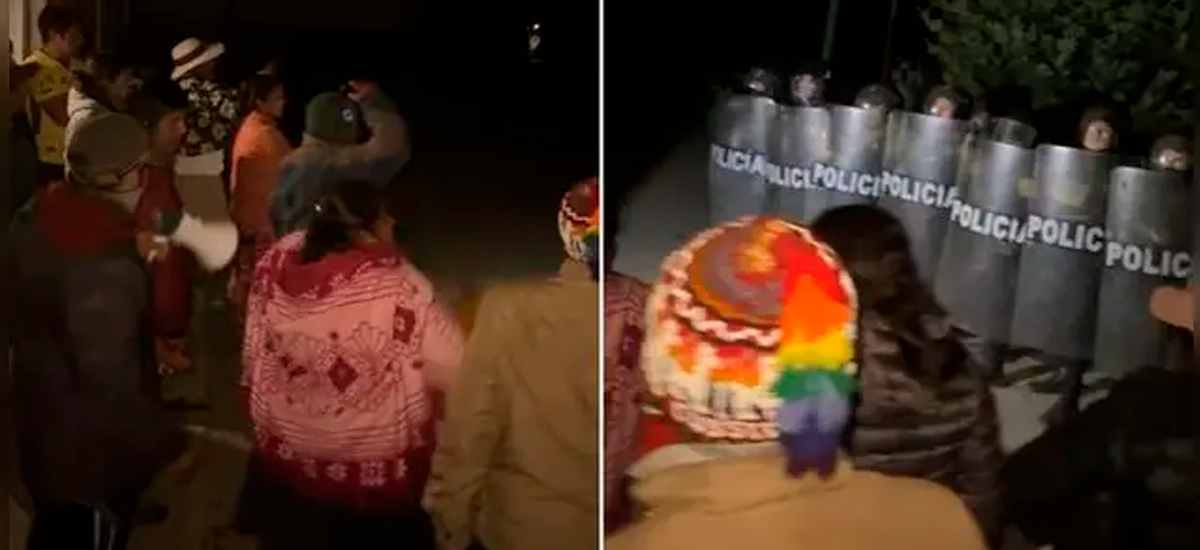
Million-Dollar Losses and Cancellation of Reservations in Machu Picchu
The tourist transport crisis to Machu Picchu is already showing serious economic consequences. According to Michael Ugarte, president of the Chamber of Commerce and Tourism of Machu Picchu, the lack of compliance in the bus renewal has caused the cancellation of 40% of the reservations in the district. Ugarte directly blames Peru Rail and the official Martín Bocángel for not executing the orders that commanded to replace the fleet after the end of the contract with Consettur.
“On September 9, the transfer of the vehicle units should have been carried out and it has not been done yet. This seriously affects a global destination like Machu Picchu”, Ugarte said. The Chamber estimates daily losses of close to a million soles, due to the drop in income in hotels, restaurants, artisan shops, and services related to tourism. In just three days of conflict, the losses exceed three million soles, creating uncertainty for thousands of families that depend on this activity.
The cancellation of tourist packages and the lack of tickets to enter the citadel have deepened the crisis. Currently, there are no available tickets from Ollantaytambo to Machu Picchu at least until September 15, and the situation could extend while the conflict between the transport operators is not solved.
Suspension of Trains to Machu Picchu
The railway service to Machu Picchu was temporarily suspended by Perú Rail due to blockages on the railway line, which left thousands of tourists stranded without a clear return route to Cusco.
Reason for the suspension
According to an official statement, the obstructions include large stones placed on the rails, in addition to social protests in the Ccorihuayrachina sector, which compromises the safety of railway traffic.
The concessionaire of the railway line, Ferrocarril Trasandino S.A., reported that operations will be temporarily suspended until the necessary conditions for safe circulation are restored.
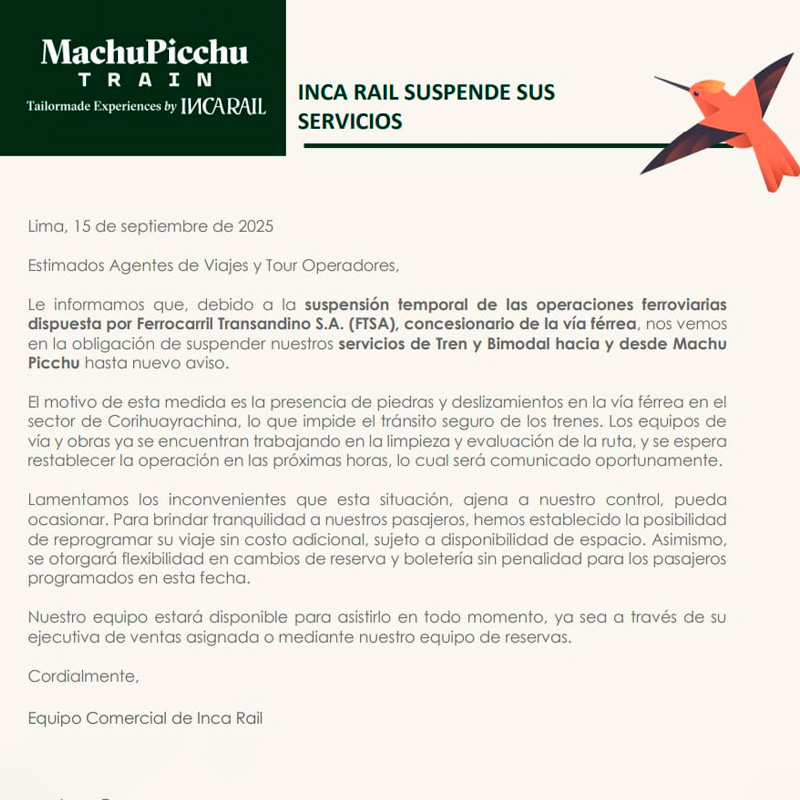 |
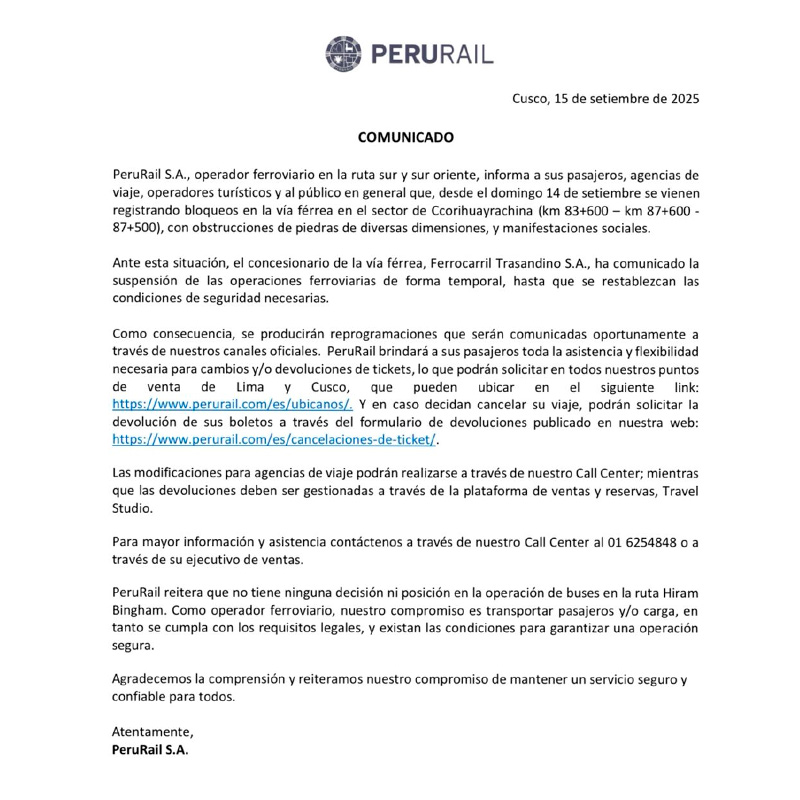 |
Measures adopted by Perú Rail
- Service rescheduling: The affected trains will be rescheduled, and the information will be communicated to passengers in due time.
- Facilities for travelers: Options for ticket changes and refunds have been enabled. Users can contact the Call Center (01 625 4848) or directly with their sales executive.
- Operational limitations: Perú Rail clarified that it has no part in road transport on the Hiram Bingham route. Its work is limited to the railway transport of passengers and cargo, as long as there are safety conditions and legal requirements are met.
Impact on tourists
The suspension has generated concern among visitors, many of whom are stranded at intermediate stations and in Machu Picchu Pueblo (Aguas Calientes). Although the citadel remains open, the uncertainty over transportation continues to affect the travel experience.
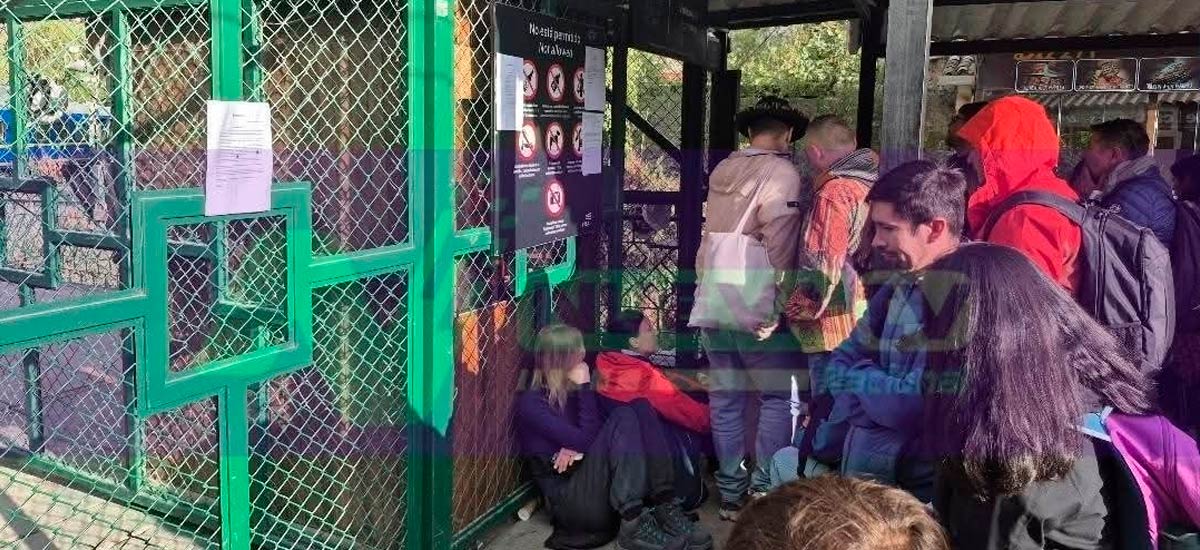
New7Wonders warns of risk to Machu Picchu’s international status
The Machu Picchu in Crisis has not only local repercussions, but also at a global level. The New7Wonders organization, responsible for giving it the title of New Wonder of the World in 2007, issued a severe statement warning that the Inca citadel could lose this distinction if urgent measures are not taken.
According to the entity, factors such as the lack of sustainable management, excessive tourist pressure, the rise in prices, reports of irregularities in the sale of tickets, transport problems, and recurring social conflicts directly threaten the international recognition of Machu Picchu. New7Wonders emphasizes that the permanence of this title depends on “an immediate and coordinated action by the Peruvian State”, remembering that the prestige reached was the result of a historical effort by the nation, and not a gift.
The statement urges the three levels of government, local communities, and the private sector to work together to apply international standards of preservation and responsible management. The so-called “wonder effect”, which creates thousands of jobs, boosts the economy, and strengthens the image of Peru in the world, can only be maintained if tourism is managed with sustainable development and solid public policies. Otherwise, the distinction could be withdrawn, putting at risk not only the reputation of Machu Picchu, but also that of the entire country before the international community.
To this warning is added the suspension of the railway service on the south and southeast route. Both PeruRail and Ferrocarril Transandino S.A. reported that the blockades and pickets in the Corihuayrachina sector prevent the normal operation of the trains. The companies have rescheduled trips and asked passengers for understanding, while also warning that, as long as the blockades persist, it will not be possible to resume regular operations. This situation increases the uncertainty of visitors and deepens the negative impact on local and regional commerce.
